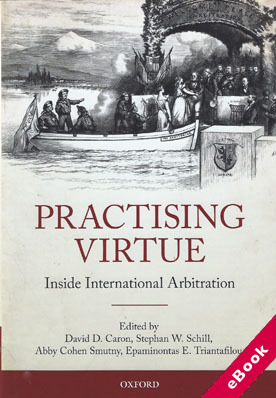
The device(s) you use to access the eBook content must be authorized with an Adobe ID before you download the product otherwise it will fail to register correctly.
For further information see https://www.wildy.com/ebook-formats
Once the order is confirmed an automated e-mail will be sent to you to allow you to download the eBook.
All eBooks are supplied firm sale and cannot be returned. If you believe there is a fault with your eBook then contact us on ebooks@wildy.com and we will help in resolving the issue. This does not affect your statutory rights.
International arbitration has developed into a global system of adjudication, dealing with disputes arising from a variety of legal relationships: between states, between private commercial actors, and between private and public entities. It operates to a large extent according to its own rules and dynamics - a transnational justice system rather independent of domestic and international law. In response to its growing importance and use by disputing parties, international arbitration has become increasingly institutionalized, professionalized, and judicialized. At the same time, it has gained significance beyond specific disputes and indeed contributes to the shaping of law. Arbitrators have therefore become not only adjudicators, but transnational lawmakers. This has raised concerns over the legitimacy of international arbitration.
Practising Virtue looks at international arbitration from the 'inside', with an emphasis on its transnational character. Instead of concentrating on the national and international law governing international arbitration, it focuses on those who practise international arbitration, in order to understand how it actually works, what its sources of authority are, and what demands of legitimacy it must meet. Putting those who practise arbitration into the centre of the system of international arbitration allows us to appreciate the way in which they contribute to the development of the law they apply. This book invites eminent arbitrators to reflect on the actual practice of international arbitration, and its contribution to the transnational justice system.